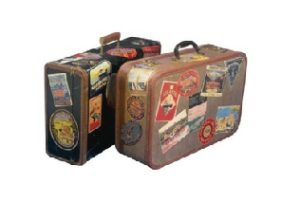From: STEP Notifications <STEP-Notifications@STATE.GOV>
Nicaragua Travel Advisory, Level 3: Reconsider Travel, July 6, 2018
Reconsider travel to Nicaragua due to crime, civil unrest, and limited healthcare availability.
On July 6, 2018, the U.S. government ordered the departure of non-emergency U.S. government personnel. The U.S. Embassy remains open to provide emergency services for U.S. citizens.
Heavily armed, government-controlled paramilitary forces in civilian clothing, sometimes numbering in the hundreds, operate in large parts of the country, including Managua. They are often in vehicles that don’t have license plates, and they may be escorted by uniformed police forces. These groups are attacking blockades, kidnapping and detaining individuals, taking over privately owned land, and committing other crimes.
Rallies and demonstrations are widespread and occur daily with little notice. Government-controlled forces have attacked peaceful demonstrators leading to significant numbers of deaths and injuries. Looting, vandalism, and acts of arson often occur during unrest, including in tourist areas. Government authorities detain protesters, and some people have disappeared. Human rights groups have documented credible claims of torture of detainees.
Road blocks, including in Managua and other major cities, may limit availability of food and fuel. Road blocks may also limit access to the Augusto C. Sandino International airport in Managua. Criminals are in charge of some of the road blocks.
Hospitals around the country are inundated with victims of violence and lack the capacity to respond to other emergencies. Other hospitals have denied treatment to people wounded in protests.
Violent crime, such as sexual assault and armed robbery, is common and has increased as security forces focus on the civil unrest. Police presence and emergency response are extremely limited.
The U.S. Embassy in Managua is limited in the assistance it can provide. U.S. government personnel in Nicaragua must remain in their homes and avoid unnecessary travel between sundown and sunrise. In Managua, they must avoid Rotonda Metrocentro, Rotonda Universitaria, and the vicinity of universities, particularly UNAN.
U.S. government personnel are prohibited from using public buses and mototaxis and from entering the Oriental Market in Managua and gentlemen’s clubs throughout the country due to crime.
Additional restrictions on movements by US. government personnel may be put in place at any time, depending on local circumstances and security conditions, which can change suddenly.
Read the Safety and Security section on the country information page.
If you decide to travel to Nicaragua:
- Consider arrangements to depart the country. There are no plans for a U.S. government-assisted evacuation.
- Avoid demonstrations. Foreigners, including U.S.-Nicaraguan dual nationals, may risk arrest or expulsion if they participate in protests.
- Restrict unnecessary travel.
- Do not attempt to drive through crowds, barricades, or road blocks.
- Maintain adequate supplies of food, cash, potable water, and fuel if sheltering in place.
- Ensure your U.S. passport is valid and available for a quick departure from the country, if needed.
- Use caution when walking or driving at night.
- Keep a low profile.
- Do not display signs of wealth such as expensive watches or jewelry.
- Be aware of your surroundings.
- Visit our website for Travel to High-Risk Areas.
- Enroll in the Smart Traveler Enrollment Program(STEP) to receive Alerts and make it easier to locate you in an emergency.
- Follow the Department of State on Facebook and Twitter.
- Review the Crime and Safety Report for Nicaragua.
- U.S. citizens who travel abroad should always have a contingency plan for emergency situations. Review the Traveler’s Checklist.
 “That will be 6 Euro please”, said the
“That will be 6 Euro please”, said the